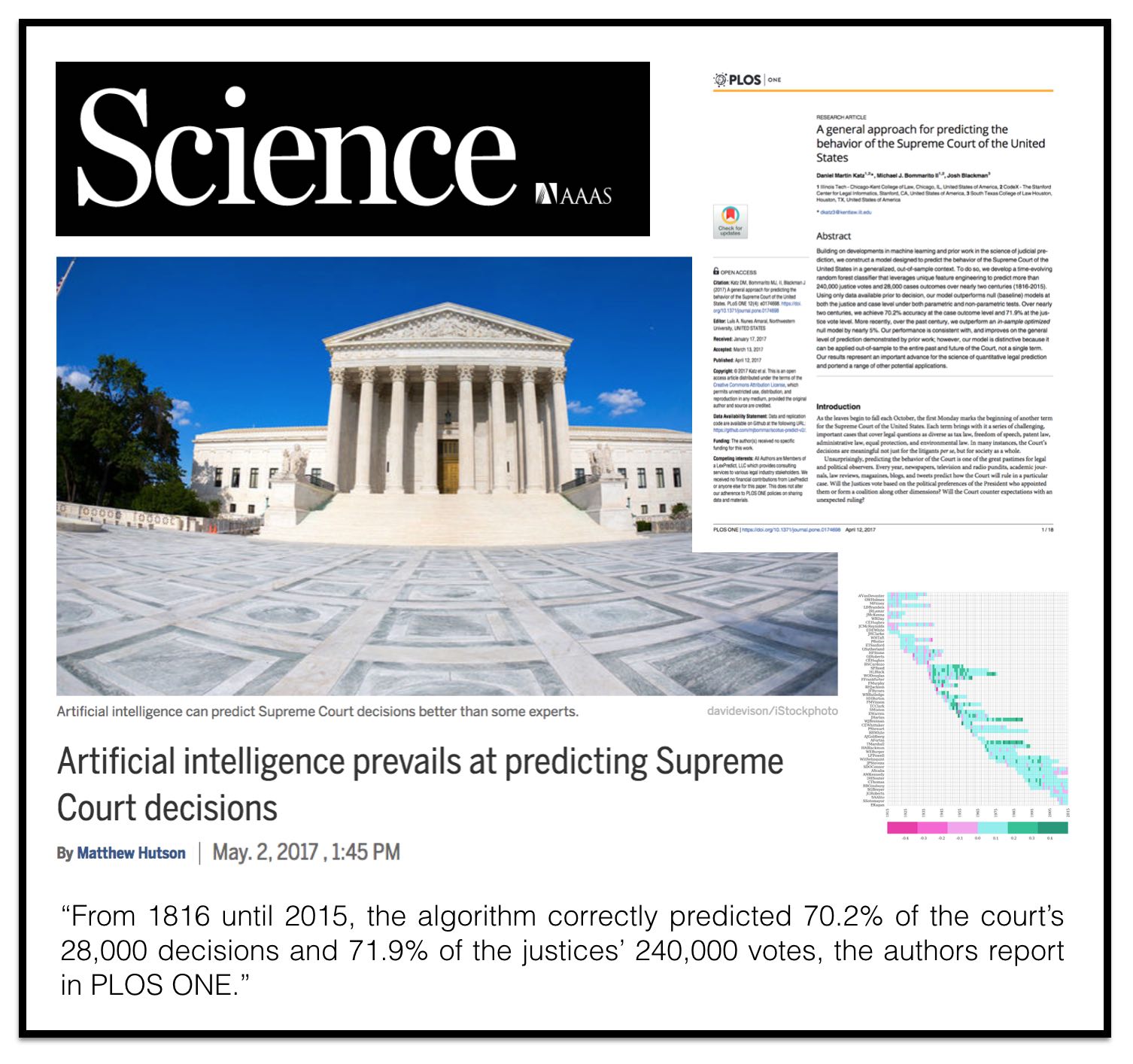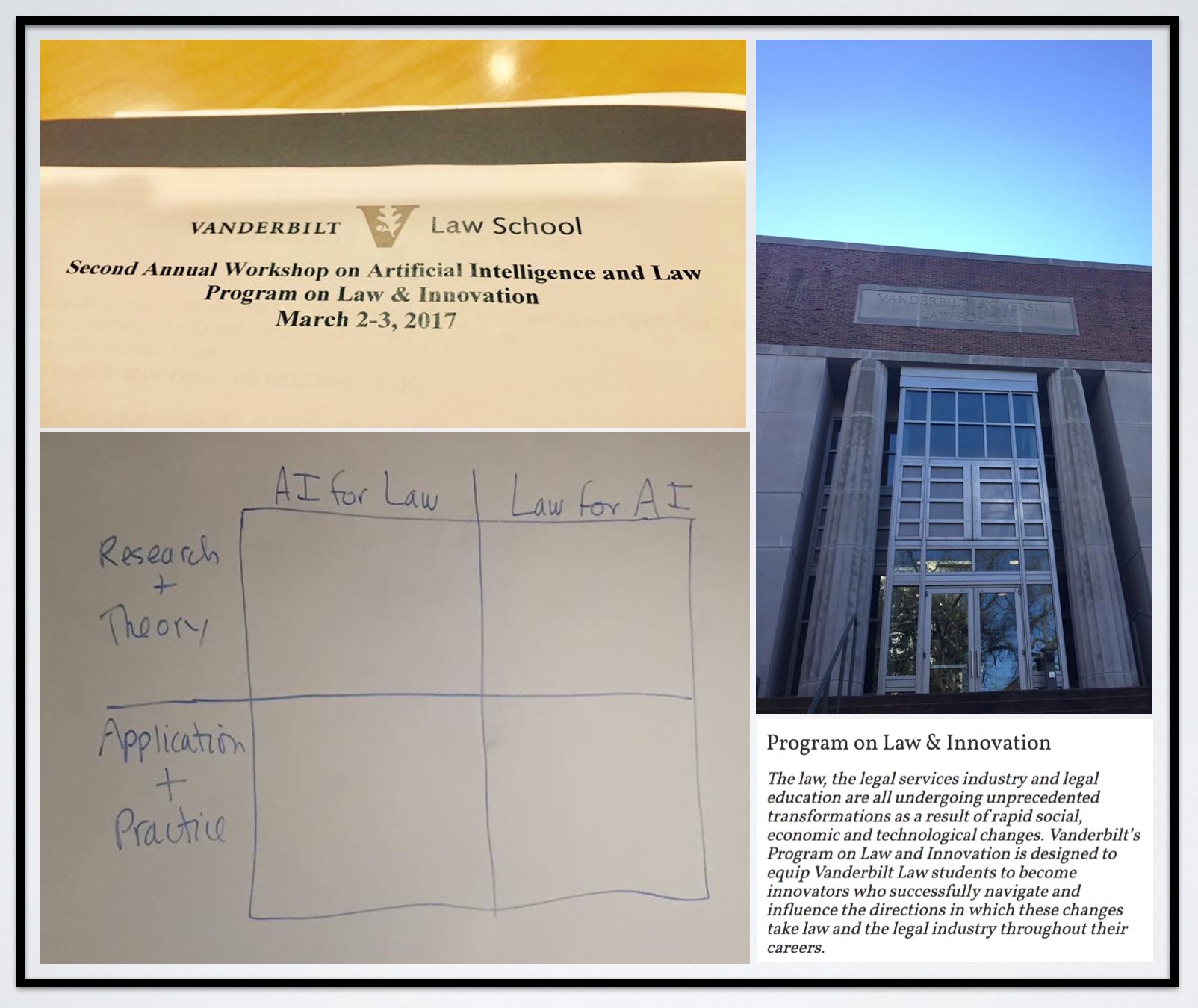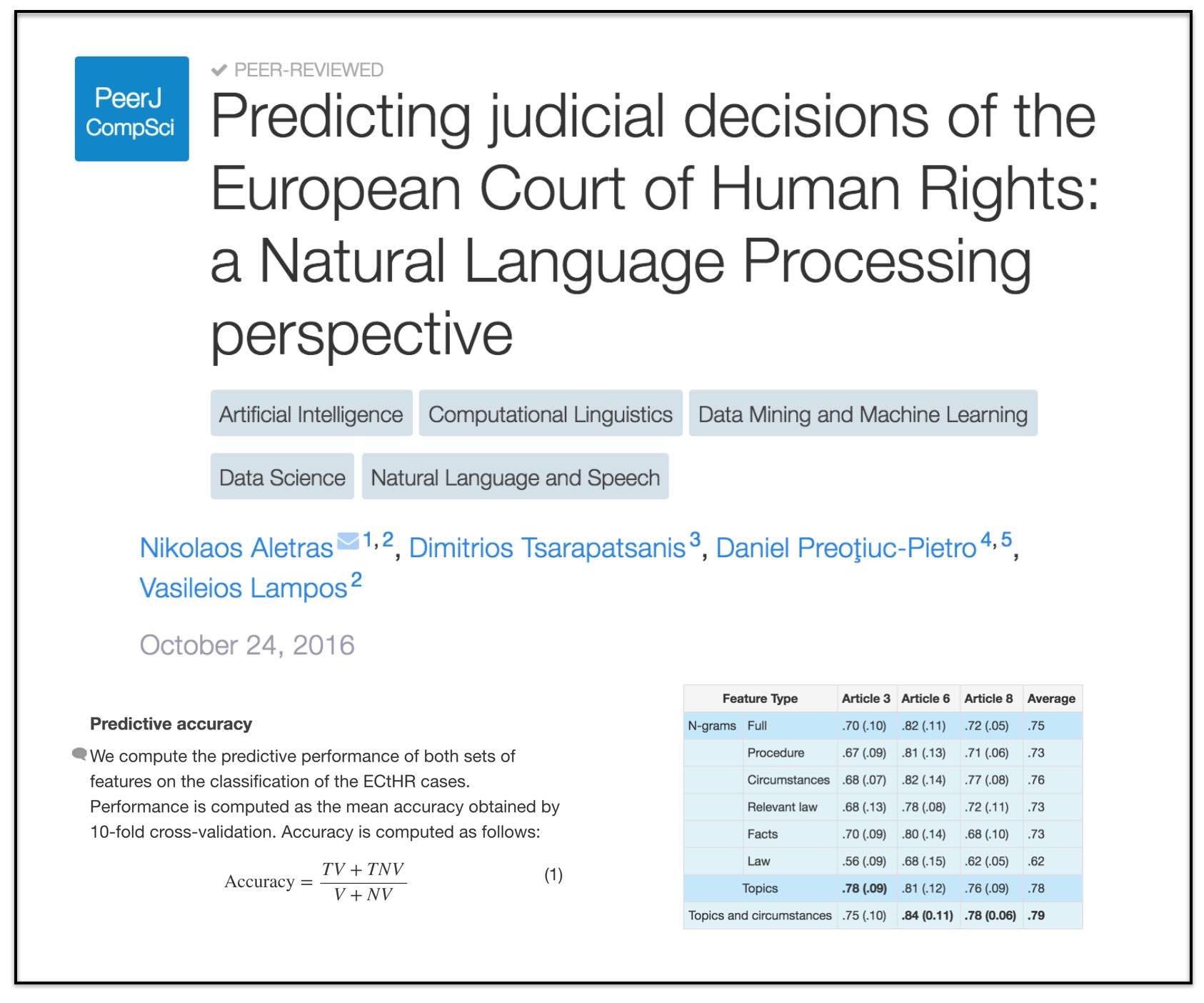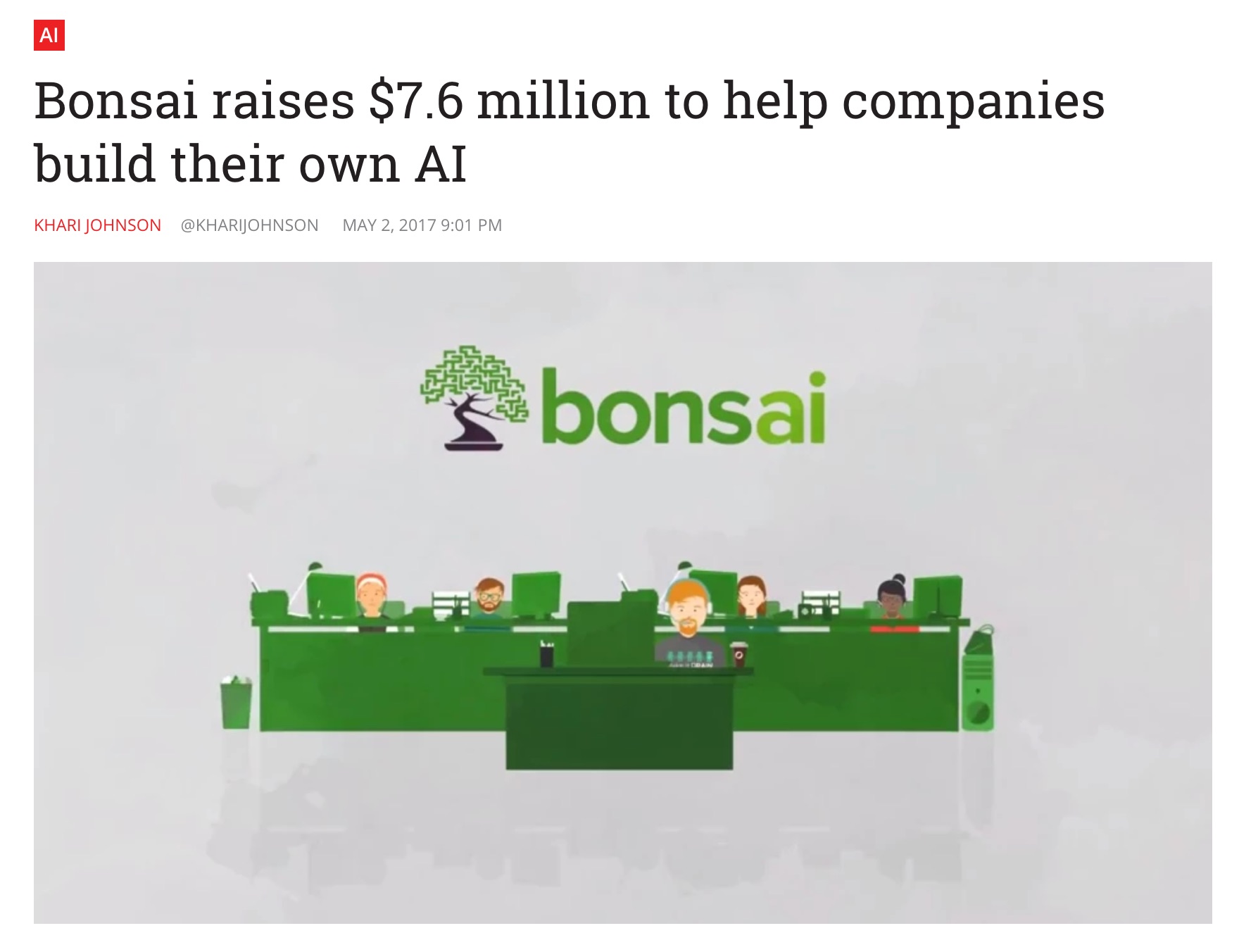 From Venture Beat – “AI startup Bonsai has raised $7.6 million to grow its platform that simplifies open-source machine learning library TensorFlow to help businesses construct their own artificial intelligence models and incorporate AI into their business.”
From Venture Beat – “AI startup Bonsai has raised $7.6 million to grow its platform that simplifies open-source machine learning library TensorFlow to help businesses construct their own artificial intelligence models and incorporate AI into their business.”
Tag: machine learning and law
Program Chair and Speaker at the Plenary Presidential Summit @ New York State Bar Association Annual Meeting – Artificial Intelligence and its Impact on the Legal Profession –
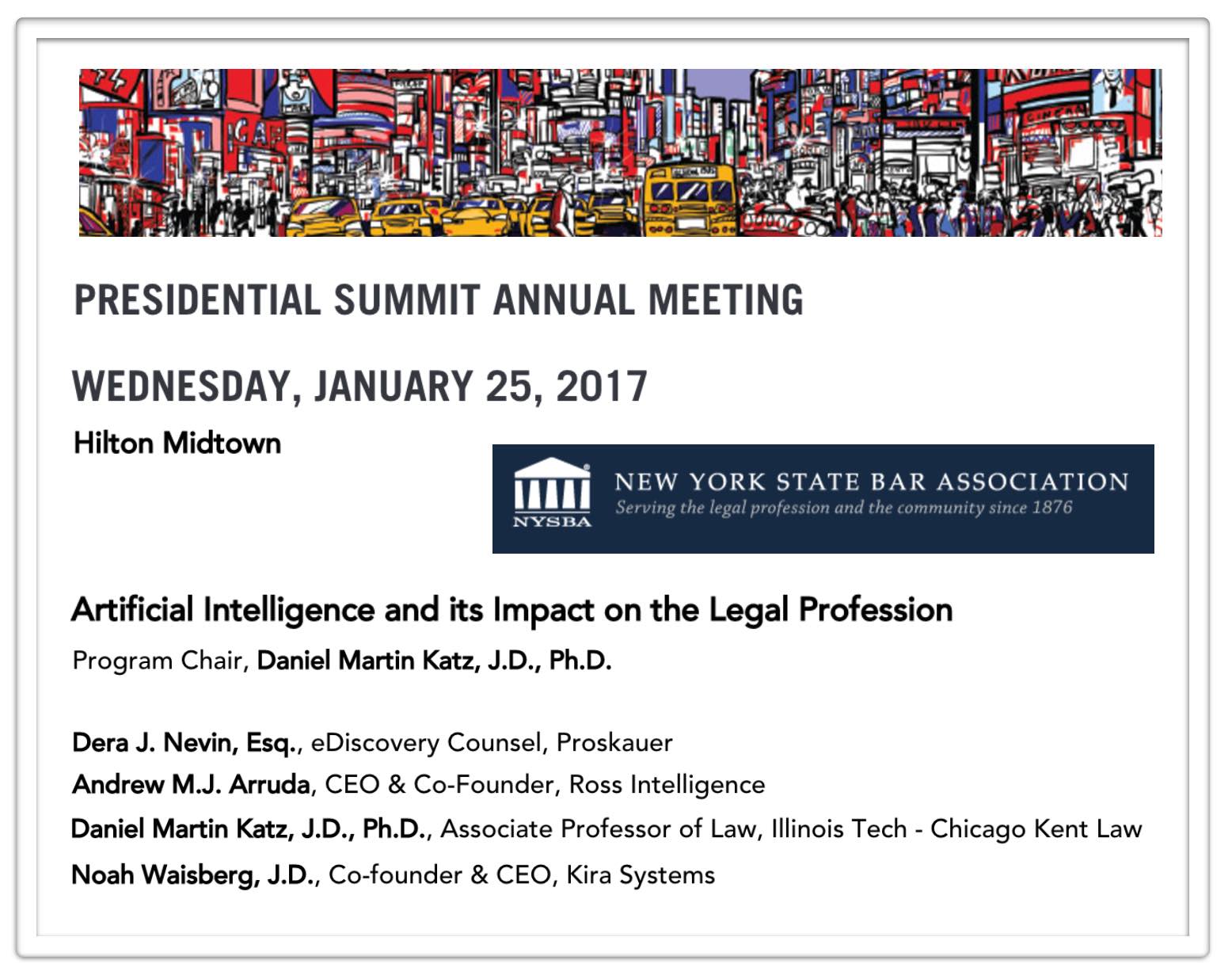
I am pleased to serve as a Program Chair and Speaker at the Plenary Presidential Summit @ New York State Bar Association Annual Meeting. Today’s topic will be Artificial Intelligence and its Impact on the Legal Profession. Joining me on the panel are the following panelists covering the following topics:
What is Artificial Intelligence? What is Machine Learning?
Dera J. Nevin, eDiscovery Counsel, Proskauer
What are Some Applications of Artificial Intelligence, Machine Learning, and Predictive Analytics in Law?
Andrew M.J. Arruda, CEO & Co-Founder, Ross Intelligence
Daniel Martin Katz, J.D., Ph.D., Associate Professor of Law, Illinois Tech – Chicago Kent Law
What are the Labor Market Impacts? More Jobs, Less Jobs, Different Forms of Legal Jobs and Legal Work?
Noah Waisberg, J.D., Co-founder & CEO, Kira Systems
Economists are Prone to Fads, and the Latest is Machine Learning (via The Economist)
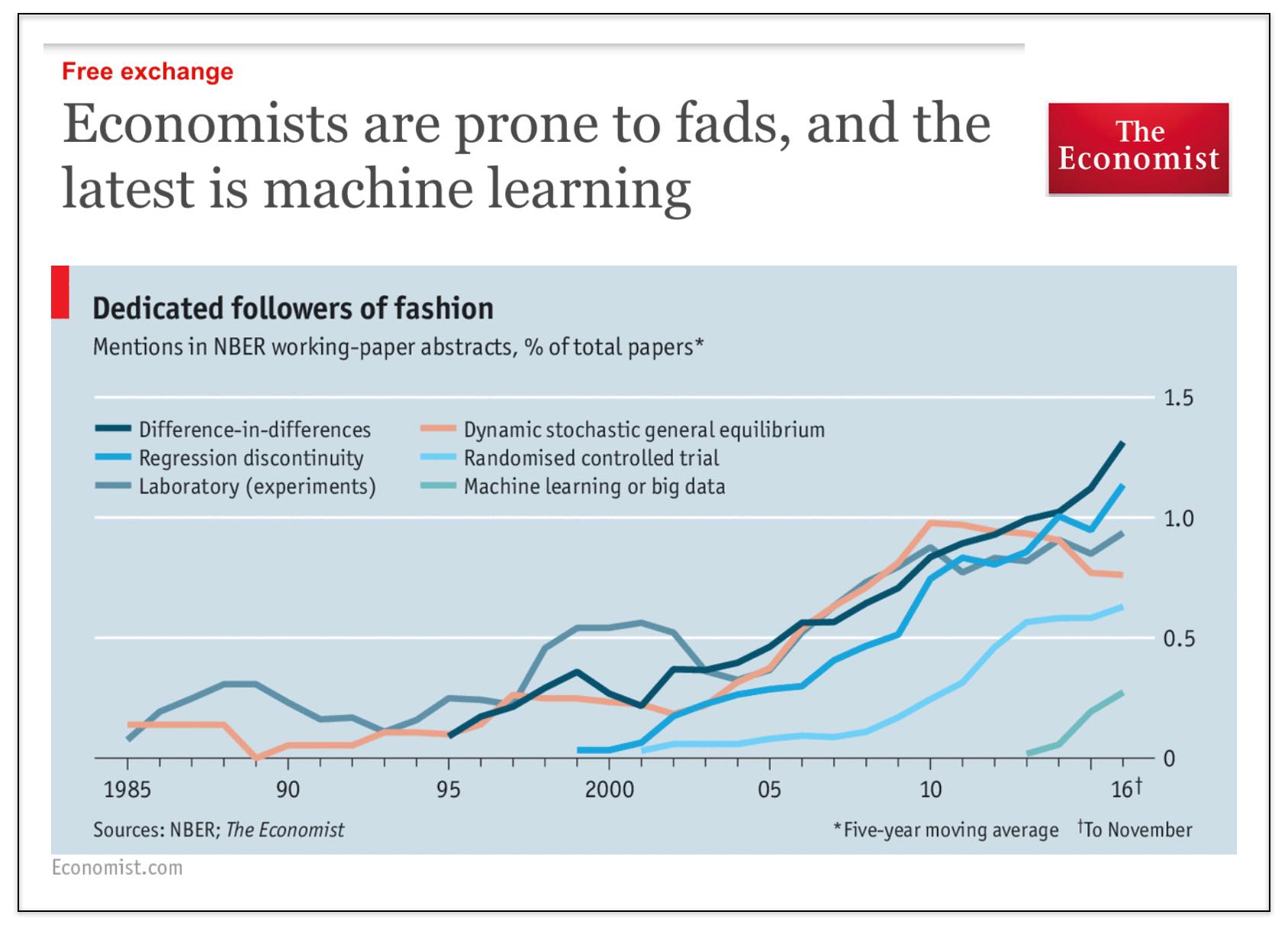
We started this blog (7 years ago) because we thought that there was insufficient attention to computational methods in law (NLP, ML, NetSci, etc.) Over the years this blog has evolved to become mostly a blog about the business of law (and business more generally) and the world is being impacted by automation, artificial intelligence and more broadly by information technology.
However, returning to our roots here — it is pretty interesting to see that the Economist has identified that #MachineLearning is finally coming to economics (pol sci + law as well).
Social science generally (and law as a late follower of developments in social science) it is still obsessed with causal inference (i.e. diff in diff, regression discontinuity, etc.). This is perfectly reasonable as it pertains to questions of evaluating certain aspects of public policy, etc.
However, there are many other problems in the universe that can be evaluated using tools from computer science, machine learning, etc. (and for which the tools of causal inference are not particularly useful).
In terms of the set of econ papers using ML, my bet is that a significant fraction of those papers are actually from finance (where people are more interested in actually predicting stuff).
In my 2013 article in Emory Law Journal called Quantitative Legal Prediction – I outline this distinction between causal inference and prediction and identify just a small set of the potential uses of predictive analytics in law. In some ways, my paper is already somewhat dated as the set of use cases has only grown. That said, the core points outlined therein remains fully intact …
Quantified Law Primer & Agile Legal Project Management Workshop
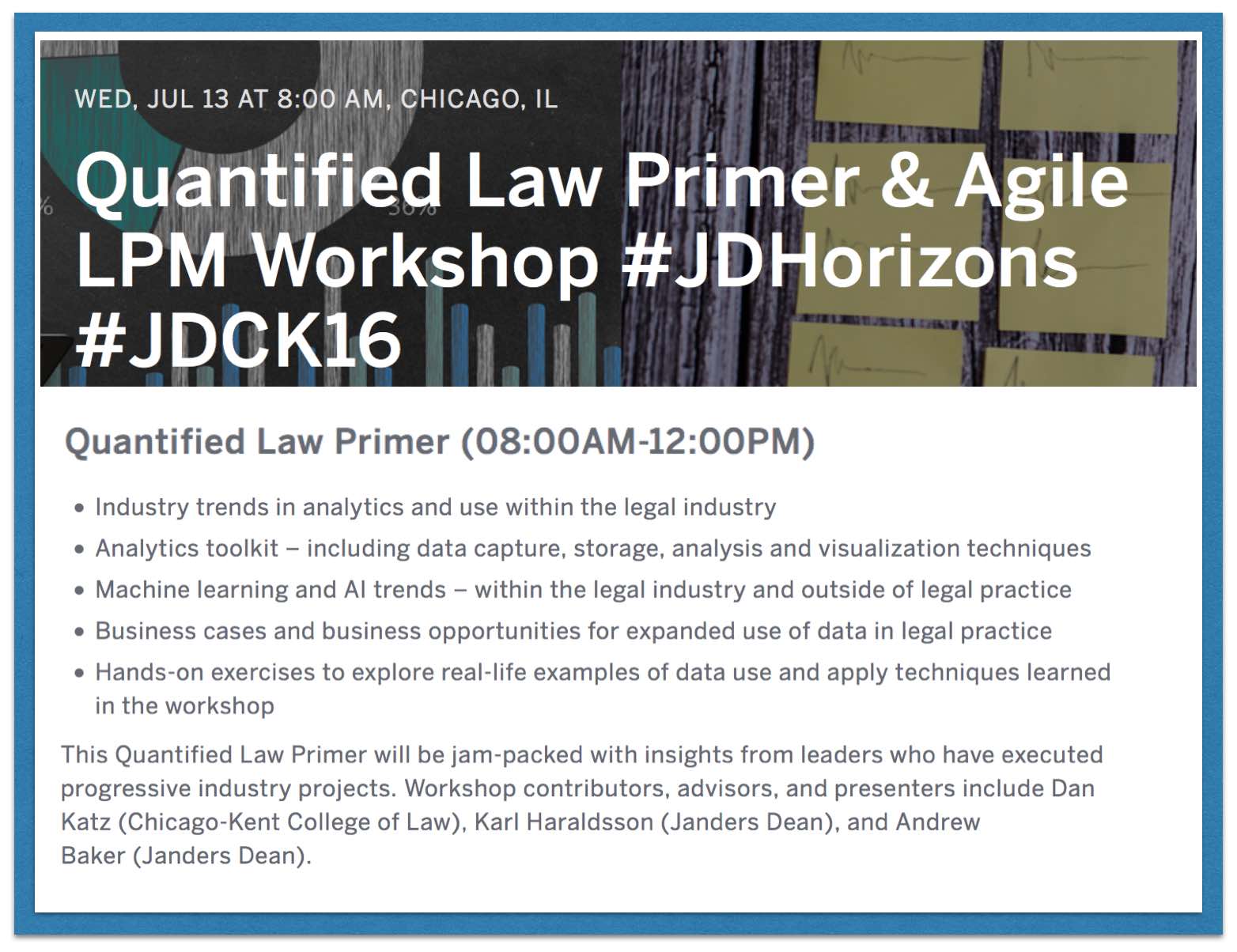
In conjunction with Janders Dean International, and SeyfarthLean Consulting we are excited to offer two, half-day educational sessions on July 13th 2016.
Quantified Law Primer (Morning SESSION)
Instructors: Daniel Martin Katz (Chicago-Kent College of Law), Karl Haraldsson (Janders Dean), and Andrew Baker (Janders Dean)
Agile LPM Workshop (Afternoon SESSION)
Instructors: Kim Craig (SeyfarthLean Consulting), Andrew Baker (Janders Dean), and Justin North (Janders Dean)
These workshops are to be held in conjunction with the Chicago Kent- Janders Dean Legal Horizon Conference on July 14th in Chicago. The Legal Horizon event features more than 20+ speakers in a single day, single stage event.

